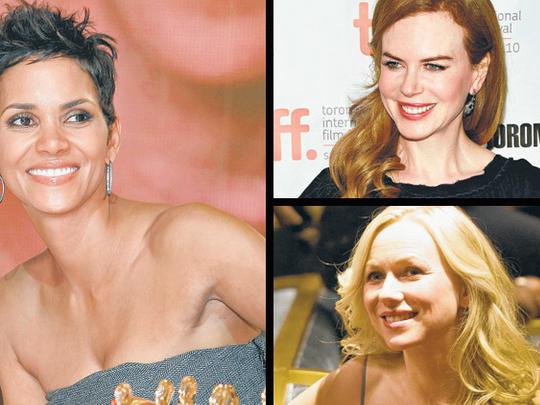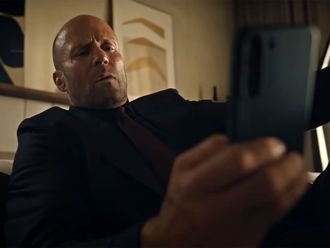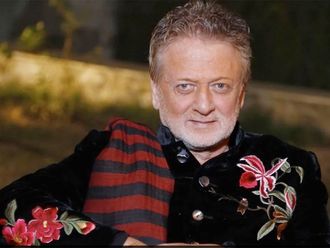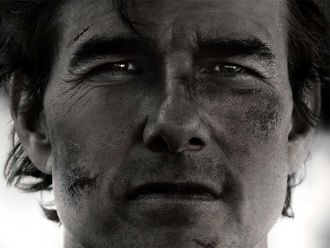
In 1962, the year she was nominated for an Oscar for playing a grotesque has-been in What Ever Happened to Baby Jane?, 54-year-old Bette Davis placed an ad in Variety.
"Thirty years experience as an actress in Motion Pictures," the ad read. "Mobile still and more affable than rumour would have it. Wants steady employment in Hollywood. (Has had Broadway)."
Davis would be shocked to see what middle-aged actresses are doing in 2010. Naomi Watts spies on terrorists, Diane Lane raises a champion racehorse, Julia Roberts decamps to an ashram. Nicole Kidman mourns a child, Helen Mirren orchestrates a shipwreck, Halle Berry splits personalities. Tilda Swinton falls in love over some prawns and Annette Bening and Julianne Moore raise teens, knock boots and tangle with a sperm donor.
Hollywood, an industry so often driven by the ids of 14-year-old boys, used to usher actresses into retirement after they lit their 39th birthday candle. But this year, leading ladies in their 40s, 50s and 60s have elbowed their way onto the screen in an abundance of principal roles in both studio and independent films.
This bumper crop of movies starring older actresses comes thanks to an increasingly valuable cinema-going audience of women over 35, an especially dogged new generation of actress-producers, and society's increasing willingness to see women in middle age as still vibrant and sexy.
According to the Screen Actors Guild, in 2003 women older than 40 accounted for 11 per cent of the female film and TV roles (excluding reality shows); by 2009 that number was up to 28 per cent.
There's still a gender gap when it comes to age in Hollywood, men in the over-40 category nabbed 42 per cent of the roles last year, but older actresses are gaining ground.
"It's time, and I'm grateful to see there being room enough for women to be adults on-screen," says Lane, 45, who starred in this fall's Disney family drama Secretariat as a Colorado housewife who takes over her family's horse racing business.
"This has been skewed for a few millennia."
Growing awareness
One reason this millennium may be different for actresses is a growing awareness in the movie industry of the untapped potential of older audiences, especially female ones.
The women who helped drive box-office hits such as The Blind Side, The Devil Wears Prada and Sex and the City would rather go out and watch Meryl Streep flirt with Alec Baldwin than stay home and play on their X-Boxes like the young adults that studios so often court.
They're also less likely to watch pirated movies. "A lot of the new distractions — video games, social networking — affect younger moviegoers more than older moviegoers," says Andrew Kosove, co-founder of Alcon Entertainment, which produced The Blind Side.
"If you're a 40-year-old married woman, you want to go out on date night Saturday night. You're not staying home and toddling on Facebook."
Women, who buy 55 per cent of movie tickets according to the Motion Picture Association of America, are inclined to watch actresses they've grown up with and relate to, like Sandra Bullock, who won the lead actress Oscar at age 45 for last year's The Blind Side.
Thanks to a 28-week run in theatres, The Blind Side became the first movie carried by a single top-billed female star to pass the $200-million mark domestically.
Streep, 61, has been on a golden box-office streak, starting with 2006's Devil, followed by Mamma Mia! in 2008, and Julie & Julia and It's Complicated last year.
Those films took in $476 million (Dh1.7 billion) in the US alone and $809 million overseas, with Mamma Mia! beating the James Bond film released that year at the box office.
"Meryl is enjoying this great renaissance in her career," says Donna Langley, co-chair of Universal Pictures, which distributed Mamma Mia! and It's Complicated.
"She's able to capitalise on the goodwill her audience has for her, and reach new audiences."
A project in development at Universal would unite Bullock, Streep and Oprah Winfrey — a stunning trifecta of midlife female empowerment — in a film from Sex and the City writer-director Michael Patrick King set at a home shopping network.
For women of a certain age, this would be the equivalent of Captain America, Iron Man and the Hulk finally linking up in The Avengers.
Bullock and Streep have had a trickle-down effect on other actresses, reminding producers and executives of an audience hungry to see its own demographic depicted on-screen.
"There was a time where people weren't interested in female-driven dramas," says Watts, 42, who played CIA agent Valerie Plame in this fall's politico-marital drama Fair Game.
"But Sandra Bullock winning ... had an effect, and we're in a good place right now. My career is, in a way, better than ever. When you're over 40 that's not supposed to be the case, but it is."
Some actresses are finding the right screen roles not by widening their reach, as Streep and Bullock have, but by taking on new off-camera roles as producers.
Rabbit Hole, a drama, is the first project Kidman starred in and produced for her company, Blossom Films.
"Unless I produce, it's rare that I get to read scripts of substance," says Kidman, 43, who has multiple other projects in the works at her company, including one based on the British novel Little Bee.
"I read books and go, ‘OK, let's option this.' The expectation on the budget needs to be realistic, but it can be done."
Oscar nomination
The budget for Rabbit Hole, which is based on a Pulitzer Prize-winning play and costars Aaron Eckhart, was under $5 million, and Kidman's performance, as a stoic mother coping with the death of her child, is being buzzed about as worthy of an Oscar nomination.
Swinton spent 11 years as a producer developing I Am Love, an operatic Italian art-house film about a passionate woman at the heart of a family scandal that was released in June. I Am Love earned a respectable $5 million in very limited release, and garnered rhapsodic reviews for Swinton's performance, which required her to speak Italian in a Russian accent.
Swinton, 50, has been working steadily since her 20s, but her most mainstream roles in movies such as Michael Clayton and the Chronicles of Narnia series came after she turned 40.
"By 40, people know what you can do," Swinton says. "And when you've been working for a fair amount of time, there's a confidence in your own ability."
Berry, 44, also produced her new movie, Frankie and Alice, a psychological drama based on the true story of a black woman whose multiple personalities include a white racist.
All of these films have the kind of virtuosic roles that actors relish, and the kind of contemplative subject matter studios shy from. Not waiting for a director or executive to cast them in something meaty, these actress-producers take their careers into their own hands.
Unusual
For years, director Lisa Cholodenko struggled to raise money for an unusual project — an indie comedy starring two actresses over 40.
"I would get disheartened and think I should have made it easier on myself and written some rom-com for the 20s set," Cholodenko says.
Her film, The Kids Are All Right, about a couple who meet their sperm donor, eventually came together starring Moore, who just turned 50, and Bening, 52.
In casting, Cholodenko sought out actresses who were not only over 40, but ageing naturally. "One of the many reasons why I cast these women is because they look their age and they're still really sexy and beautiful."
The Kids Are All Right went on to become an art-house hit and an Oscar favourite, and Bening and Moore models for a kind of post-Botox sex appeal. Thanks to healthier lifestyles, longer lifespans and — post-Botox or not — an array of dermatological interventions, a 50-year-old woman just isn't as old as she used to be.
"For a long time it's been youthful sexuality that's important and if you're youthful, sexuality is accepted, but if you're not, how could one possibly be sexy?" says British actress Lesley Manville, 54, who plays a flirtatious, lonely Londoner in Mike Leigh's new film, Another Year.
"But they're playing women who are sexy and sexually active. That's important, because it re-tunes people's thinking."
Ageing can even liberate actresses from stock roles defined by their beauty.
"Women in their 20s and 30s have to play the girlfriend," says Melissa Silverstein, founder of the blog Women & Hollywood.
"Once they hit 40, we can see them as real people."
For Mirren, 65, ageing out of ingenue-hood led to her best work. "I was very lucky when I was no longer the juicy young thing any more," Mirren says.
"That was when I was asked to do Prime Suspect, and that took me into the next generation of work. Sometimes you have to make an effort to find that bridge for yourself."












